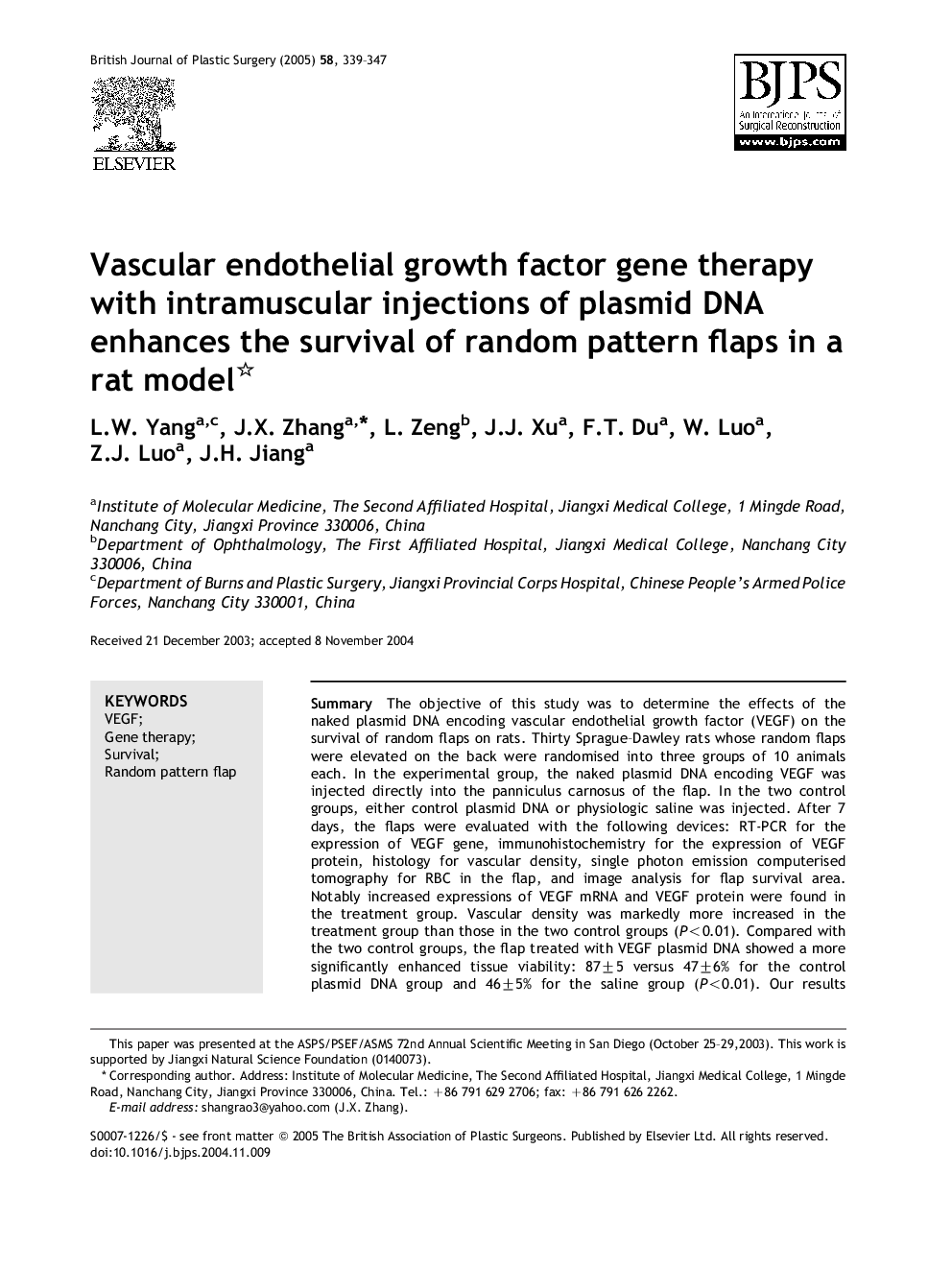| Article ID | Journal | Published Year | Pages | File Type |
|---|---|---|---|---|
| 10087157 | British Journal of Plastic Surgery | 2005 | 9 Pages |
Abstract
The objective of this study was to determine the effects of the naked plasmid DNA encoding vascular endothelial growth factor (VEGF) on the survival of random flaps on rats. Thirty Sprague-Dawley rats whose random flaps were elevated on the back were randomised into three groups of 10 animals each. In the experimental group, the naked plasmid DNA encoding VEGF was injected directly into the panniculus carnosus of the flap. In the two control groups, either control plasmid DNA or physiologic saline was injected. After 7 days, the flaps were evaluated with the following devices: RT-PCR for the expression of VEGF gene, immunohistochemistry for the expression of VEGF protein, histology for vascular density, single photon emission computerised tomography for RBC in the flap, and image analysis for flap survival area. Notably increased expressions of VEGF mRNA and VEGF protein were found in the treatment group. Vascular density was markedly more increased in the treatment group than those in the two control groups (P<0.01). Compared with the two control groups, the flap treated with VEGF plasmid DNA showed a more significantly enhanced tissue viability: 87±5 versus 47±6% for the control plasmid DNA group and 46±5% for the saline group (P<0.01). Our results indicated that the VEGF gene therapy was able to enhance the survival of random pattern flaps by inducing angiogenesis.
Related Topics
Health Sciences
Medicine and Dentistry
Otorhinolaryngology and Facial Plastic Surgery
Authors
L.W. Yang, J.X. Zhang, L. Zeng, J.J. Xu, F.T. Du, W. Luo, Z.J. Luo, J.H. Jiang,
